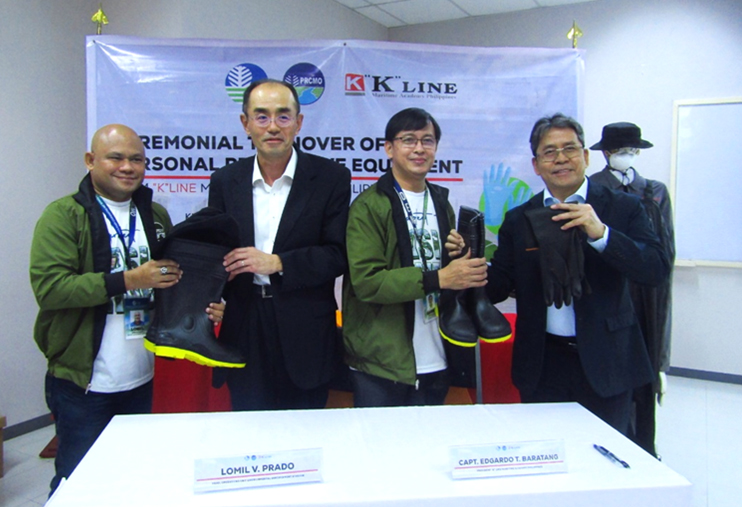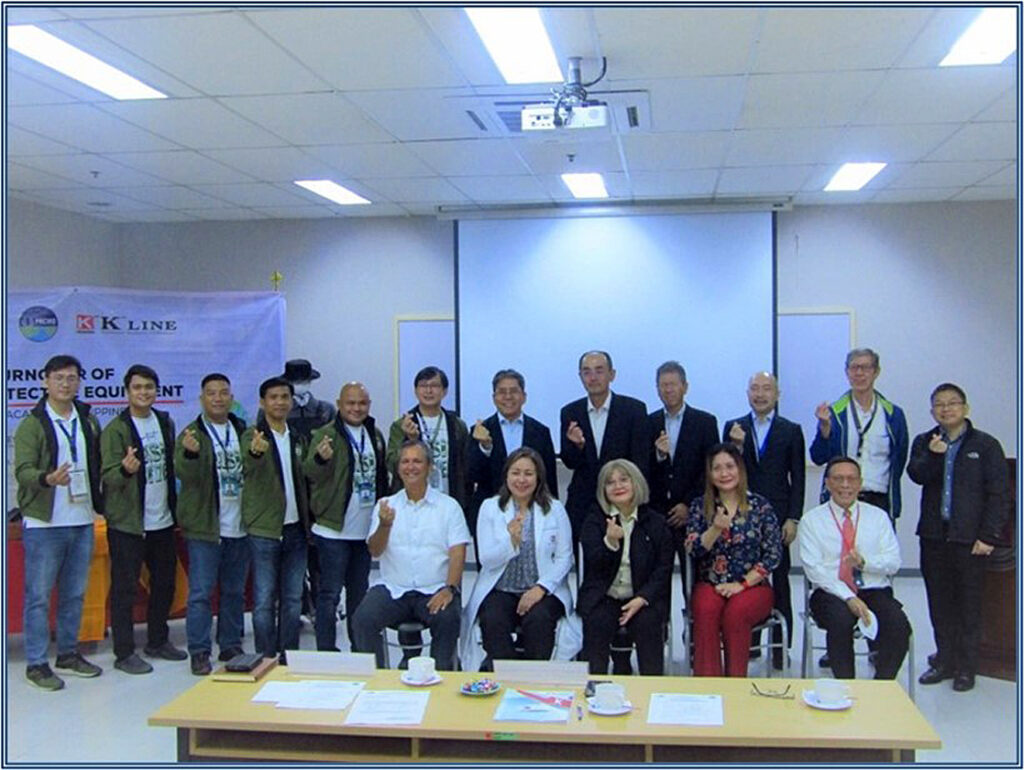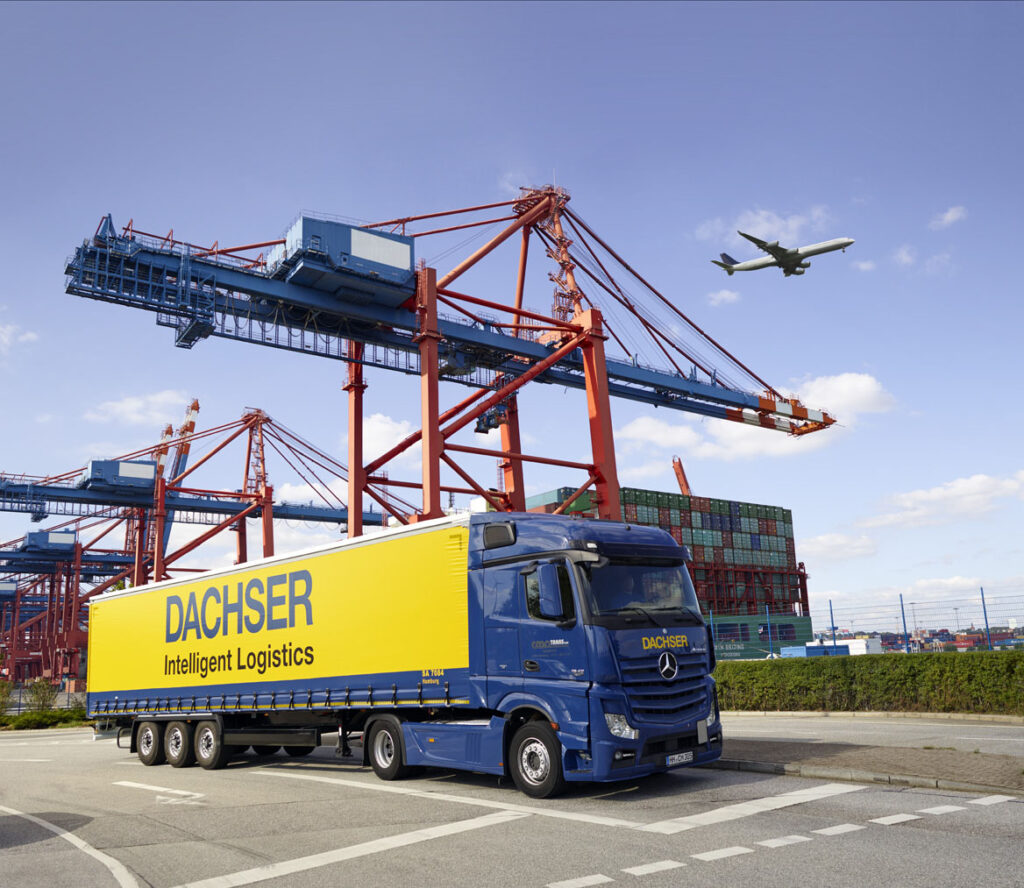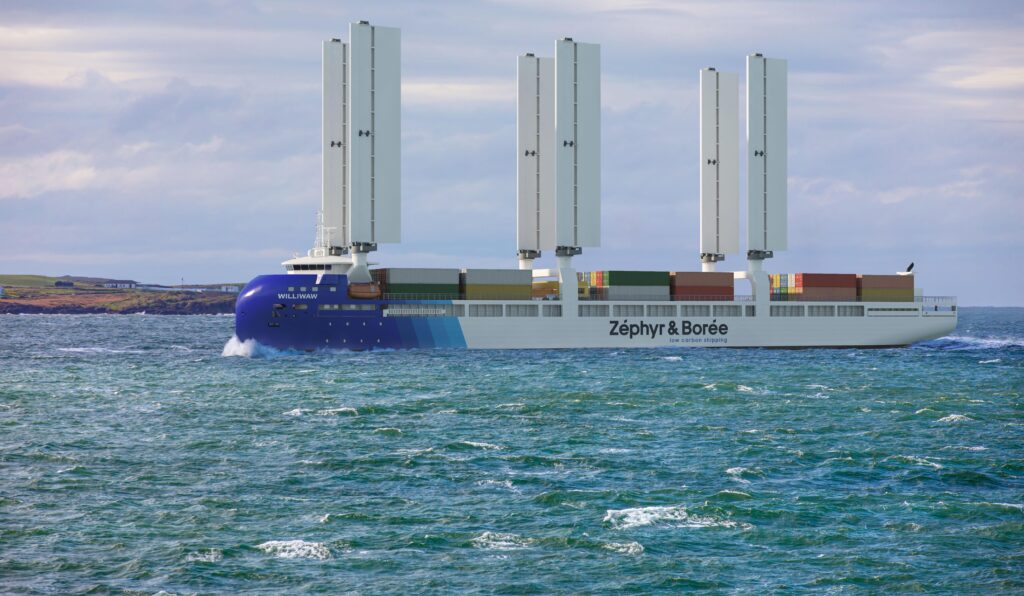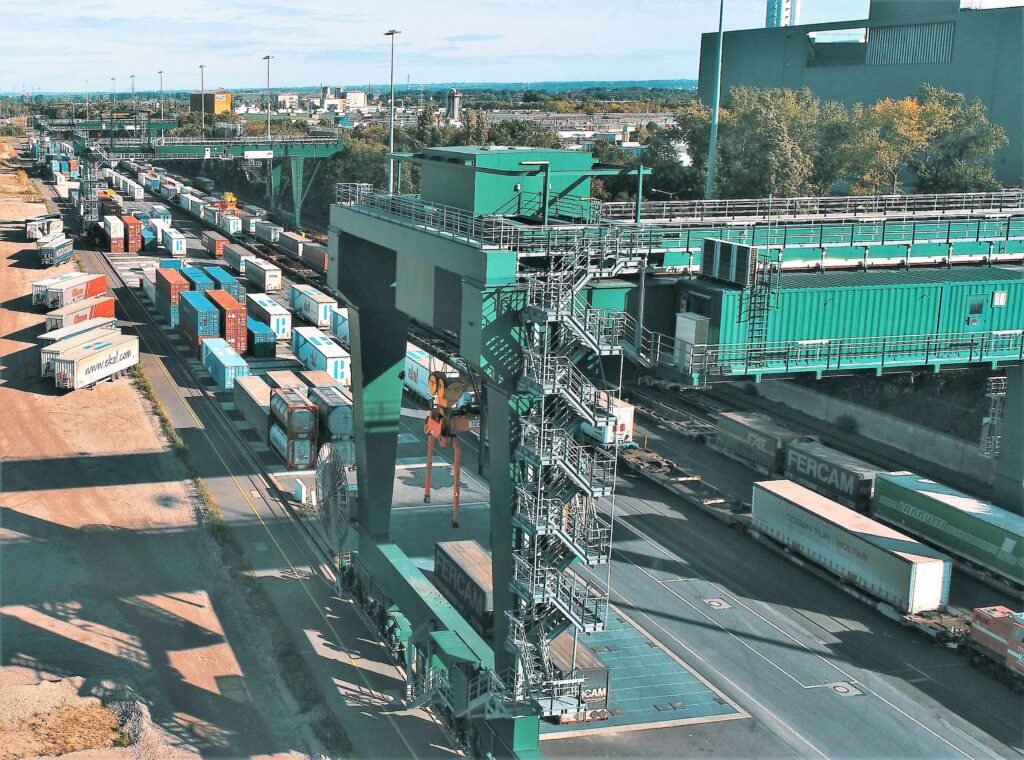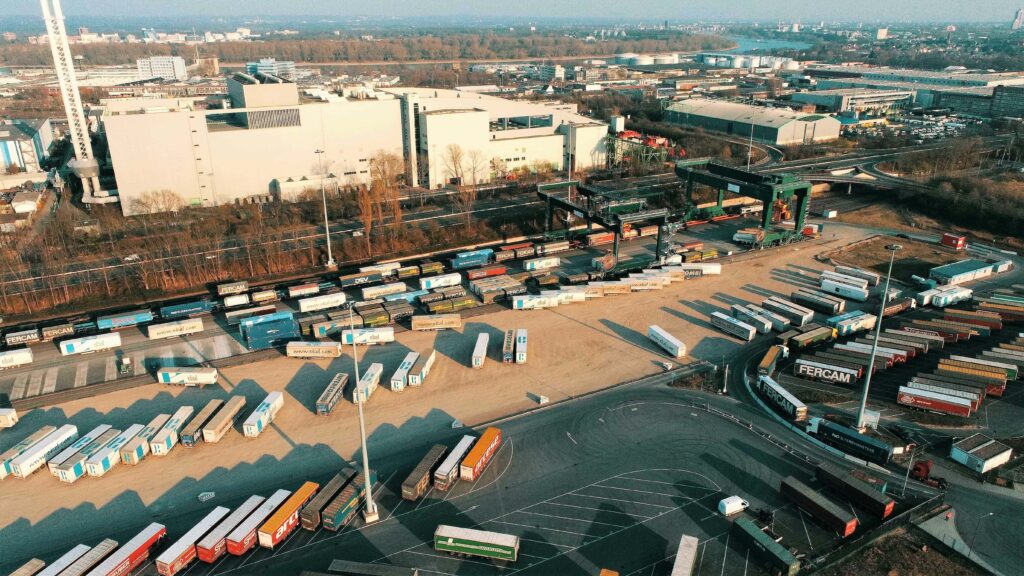Hamburg, 7 February 2023 – The municipality of Helgoland has commissioned HPC Hamburg Port Consulting (HPC) to carry out a concept study for the construction of a hydrogen bunker station on the deep-sea island. The study will require HPC to investigate the commercial and infrastructural suitability of the island as a potential location for H2 fuel supply for shipping traffic on the North Sea.
Driven by international sustainability goals and efforts to significantly reduce climate-damaging carbon dioxide emissions caused by shipping, ship owners are looking to power their vessels using alternative fuels. While the use of LNG-powered container ships has already become standard, the market is looking for renewable alternatives with long-term potential. Current research focuses on methanol, ammonia and hydrogen drives to replace conventional marine diesel fuels.
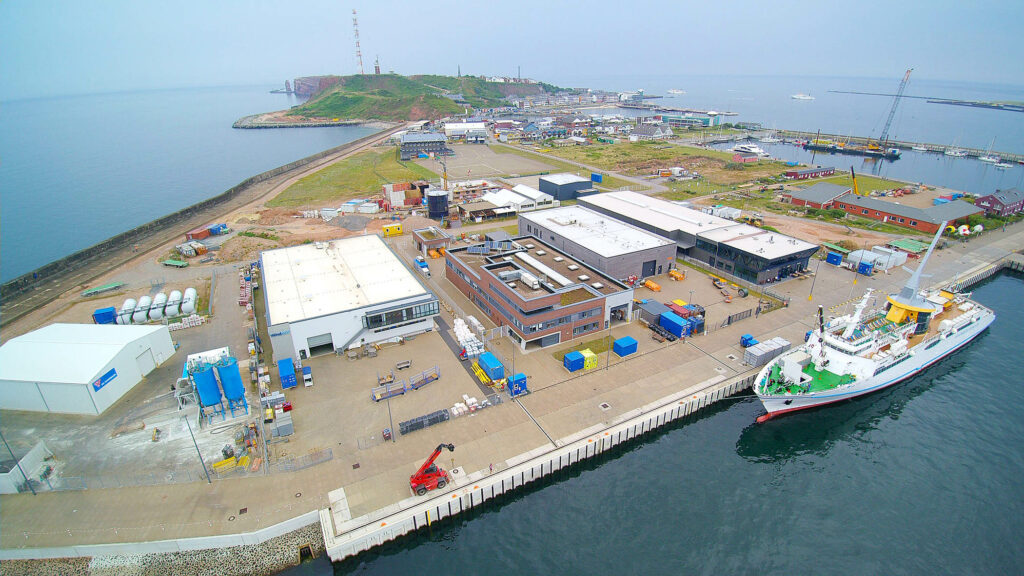
So that alternatively powered ships can be employed on a large scale, a corresponding bunker infrastructure must be available in ports. The island of Helgoland is frequented in particular by crew transfer vessels (CTVs), passenger and research ships and recreational craft. At the same time, green hydrogen from the AquaPrimus project will be available on Helgoland in the future.
“Taking into account the good availability of green hydrogen in the area of the island, we would like to examine the extent to which Helgoland can also reliably provide a supply for ships calling there in the future,” says Christoph Tewis, project manager for AquaCore and the TransHyDE project Helgoland.
The concept study carried out by HPC includes, on the one hand, evaluating the market potential of alternative fuels for island shipping with the aim of estimating the potential demand. Taking the local framework conditions into consideration, various refuelling concepts for hydrogen are then examined. Another focus is to investigate the conditions and prerequisites for the possible location of a hydrogen bunkering station with reference to suitable plans to ensure the logistics of supplying the fuel. In addition to evaluating and recommending such plans, the study will include initial estimates of the necessary investments.
“The results of the study will better enable the municipality of Helgoland and its partners to make an investment decision based on realistic costs,” says Patrick Specht, Head of Sustainability at HPC.
HPC is already credited with carrying out various national and international innovative energy projects for ship technologies and port infrastructure, including the preparation of a test centre for fuel cell vehicles in the port context for a Hamburg terminal operator.
The concept study for a hydrogen bunker station on Helgoland is funded by the German Federal Ministry of Education and Research as part of the hydrogen lead project TransHyDe. One of three hydrogen lead projects of the Ministry, TransHyDE supports the goals of the National Hydrogen Strategy, which was adopted by the Federal Government in 2020. The hydrogen lead projects involve the research and development of new technologies and application solutions for the production, storage and transport of green hydrogen.
For more information on port advisory services, please visit the website: www.hamburgportconsulting.com
About HPC
HPC Hamburg Port Consulting operates as a logistics consulting company, specialising in strategy and transformation services for the ports, terminals, and rail sectors. Since its establishment in 1976, the Hamburg-based consulting company has delivered more than 1,750 projects across 135 countries spanning six continents, along the entire port project development cycle. HPC employs about 100 domain experts with a background as terminal operators, software engineers, logistics managers, transport economists and mathematicians. As a subsidiary of the Hamburg Port and Logistics Corporation (HHLA), HPC has its roots in port handling of container, breakbulk and multipurpose, as well as hinterland operations. www.hamburgportconsulting.com
HPC erstellt Konzeptstudie für eine Wasserstoff-Bunkerstation auf der Hochseeinsel Helgoland
Hamburg, 7. Februar 2023 – Die Gemeinde Helgoland hat HPC Hamburg Port Consulting (HPC) mit einer Konzeptstudie für die Errichtung einer Wasserstoff-Bunkerstation auf der Hochseeinsel Helgoland beauftragt. HPC wird die kommerzielle und infrastrukturelle Eignung der Insel als Standort für die H2-Kraftstoffversorgung der Schiffsverkehre auf der Nordsee untersuchen.
Befördert durch internationale Nachhaltigkeitsziele sowie die Bestrebung, den klimaschädlichen Kohlendioxidausstoß der Schifffahrt signifikant zu reduzieren, entwickeln die Reeder alternative Lösungen zum Antrieb ihrer Schiffe. Während LNG-betriebene Containerschiffe bereits serienmäßig eingesetzt werden, sucht der Markt langfristig nach erneuerbaren Alternativen. Im Zentrum der Forschung liegen derzeit Methanol-, Ammoniak- und Wasserstoffantriebe zur Ablösung herkömmlicher Schiffsdieselkraftstoffe.
Um den großflächigen Einsatz alternativ bebunkerter Schiffe zu ermöglichen, muss eine entsprechende Bunkerinfrastruktur in Häfen vorhanden sein. Die Insel Helgoland wird insbesondere von Besatzungs-Transferschiffen (CTVs), Passagier- und Forschungsschiffen sowie Sportbooten frequentiert. Gleichzeitig soll auf Helgoland zukünftig grüner Wasserstoff aus dem Projekt AquaPrimus zur Verfügung stehen.
„Mit Blick auf die gute Verfügbarkeit von Grünen Wasserstoff im Inselgebiet möchten wir prüfen, inwiefern die Insel Helgoland künftig auch die Versorgung der Helgoland anlaufenden Schiffe verlässlich anbieten kann“, sagt Christoph Tewis, Projektleiter für AquaCore und das TransHyDE-Projekt Helgoland.
Die von HPC durchgeführte Konzeptstudie umfasst zum einen, das Marktpotential von alternativen Kraftstoffen für die Insel-Schiffsverkehre zu evaluieren, um den potentiellen Bedarf zu konkretisieren. Unter Berücksichtigung der örtlichen Rahmenbedingungen werden daraufhin verschiedene Betankungskonzepte für Wasserstoff untersucht. Ein zweiter Schwerpunkt liegt darauf, die Bedingungen und Voraussetzungen für einen möglichen Standort für eine Wasserstoff-Bunkerstation unter Bezugnahme passender Konzepte zur Gewährleistung der Versorgungslogistik zu untersuchen. Neben der Bewertung und Empfehlung eines geeigneten Konzeptes wird die Studie erste Schätzungen zu den notwendigen Investitionen enthalten.
„Die Ergebnisse der Studie werden die Gemeinde Helgoland und ihre Partner besser in die Lage versetzen, eine Investitionsentscheidung auf der Basis realistischer Kosten zu treffen“, sagt Patrick Specht, Leiter Nachhaltigkeit bei HPC.
HPC hat bereits verschiedene nationale und internationale innovative Energieprojekte für Schiffstechnologien und Hafeninfrastruktur durchgeführt, unter anderem bei der Vorbereitung eines Testcenters für Brennstoffzellen-Fahrzeuge im Hafenkontext für einen Hamburger Terminalbetreiber.
Die Konzeptstudie für eine Wasserstoff-Bunkerstation auf Helgoland wird im Rahmen des Wasserstoff-Leitprojekts TransHyDe durch das Bundesministerium für Bildung und Forschung gefördert. TransHyDE ist eins der drei Wasserstoff-Leitprojekte des Bundesministeriums für Bildung und Forschung und unterstützt die Ziele der Nationalen Wasserstoffstrategie, die 2020 von der Bundesregierung verabschiedet wurde. Die Wasserstoff-Leitprojekte erforschen und entwickeln neue Technologien und Anwendungslösungen für die Erzeugung, die Speicherung und den Transport von Grünem Wasserstoff.
Weitere Informationen über Hafenberatungsdienste finden Sie auf der Website: www.hamburgportconsulting.com
Über HPC
HPC Hamburg Port Consulting ist ein Logistikberatungsunternehmen, das sich auf Strategie- und Transformationsdienstleistungen für die Sektoren Häfen, Terminals und Bahn spezialisiert hat. Seit seiner Gründung im Jahr 1976 hat das Hamburger Beratungsunternehmen mehr als 1.750 Projekte in 135 Ländern auf sechs Kontinenten durchgeführt, die den gesamten Entwicklungszyklus von Hafenprojekten abdecken. HPC beschäftigt rund 100 Fachexperten mit einem Hintergrund als Terminalbetreiber, Software-Ingenieure, Logistikmanager, Verkehrsökonomen und Mathematiker. Als Tochterunternehmen der Hamburger Hafen und Logistik AG (HHLA) hat HPC seine Wurzeln im Hafenumschlag von Containern, Stückgut und Mehrzweckfracht sowie im Hinterlandverkehr. www.hamburgportconsulting.com








